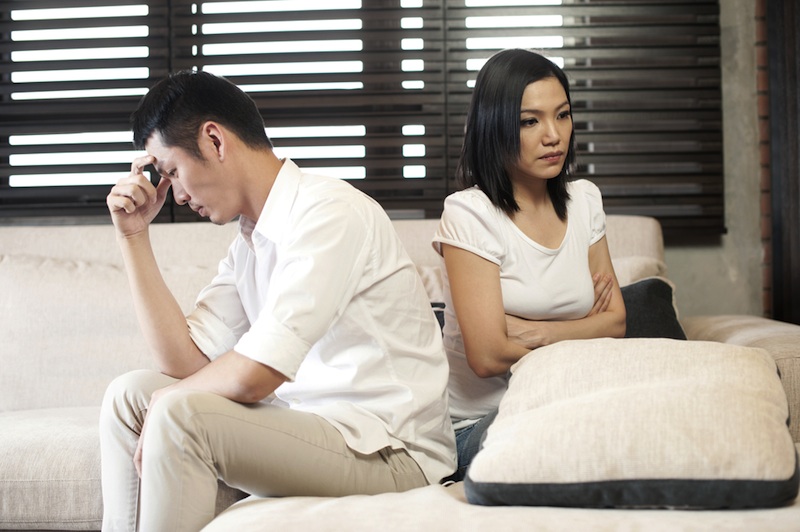Relationship Spats Stress Out Men

Get the world’s most fascinating discoveries delivered straight to your inbox.
You are now subscribed
Your newsletter sign-up was successful
Want to add more newsletters?

Delivered Daily
Daily Newsletter
Sign up for the latest discoveries, groundbreaking research and fascinating breakthroughs that impact you and the wider world direct to your inbox.

Once a week
Life's Little Mysteries
Feed your curiosity with an exclusive mystery every week, solved with science and delivered direct to your inbox before it's seen anywhere else.

Once a week
How It Works
Sign up to our free science & technology newsletter for your weekly fix of fascinating articles, quick quizzes, amazing images, and more

Delivered daily
Space.com Newsletter
Breaking space news, the latest updates on rocket launches, skywatching events and more!

Once a month
Watch This Space
Sign up to our monthly entertainment newsletter to keep up with all our coverage of the latest sci-fi and space movies, tv shows, games and books.

Once a week
Night Sky This Week
Discover this week's must-see night sky events, moon phases, and stunning astrophotos. Sign up for our skywatching newsletter and explore the universe with us!
Join the club
Get full access to premium articles, exclusive features and a growing list of member rewards.
Men and women who are about to become parents have different hormonal stress reactions to conflict in their relationship, according to a new study, which found men generally have high levels of stress after disputes, while some women might find the airing of differences reassuring.
For the study, a team of researchers from Penn State University recruited 138 heterosexual couples expecting their first baby (82 percent were married). The expectant parents separately answered questionnaires about their well-being and relationship experiences.
Then, in their own homes, each couple was video-recorded during two six-minute conversations in which they talked about something unrelated to their relationship. Next, each couple was recorded while talking about three problems in their relationship, such as money and housework.
The researchers collected three saliva samples from each participant to measure their levels of the stress hormone cortisol throughout the interview. They took an initial baseline sample before any of the interactions, a second sample immediately after the so-called "conflict discussion" and a third sample 20 minutes after that to measure recovery following the stressful conversation.
Greater hostility in the conflict discussion seemed to boost levels of cortisol in men, the researchers found, but such a pattern was not observed in women. (The team noted that women's cortisol levels are already high during pregnancy, which could explain those results.)
Men who reported an already high level of anxiety were slower to recover after a conflict discussion, while women with high anxiety had an easier time bouncing back from a particularly heated conversation, the researchers found. The same was true for women who reported high levels of chronic arguments in their relationship.
"For generally anxious men, more expressed hostility was also linked to more persistence of this elevated stress," Penn State researcher Mark Feinberg said in a statement. "On the other hand, generally anxious women experienced relatively more prolonged stress when there were lower levels of negativity and hostility expressed during the discussion."
Get the world’s most fascinating discoveries delivered straight to your inbox.
That might sound counterintuitive, but Feinberg said anxious women, and women in relationships filled with chronic arguing, might find the airing of differences as a reassurance that the couple is engaged with each other.
"This may be particularly important for women during the vulnerable period of their first pregnancy," Feinberg said in a statement. "It would be useful for couples to understand that they need to carefully balance the apparently beneficial effects that discussing difficult relationship topics had for some women with the apparently negative effects it has on some men."
The findings appeared in the British Journal of Psychology last week.
Follow LiveScience on Twitter @livescience. We're also on Facebook & Google+.
 Live Science Plus
Live Science Plus











